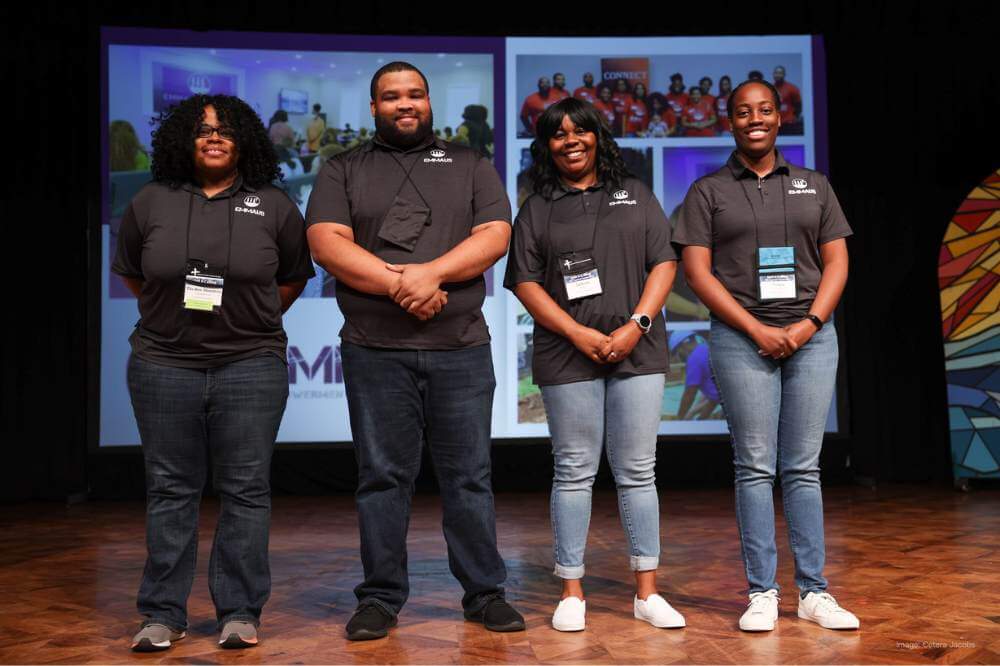We know the truth
In her June column for Living Lutheran, Presiding Bishop Elizabeth Eaton compares her father’s experience following the war to that of African American soldiers. And knowing the truth of such realities, she writes, means “we have to do something about it.”
Father’s Day is in June. Let me tell you a little bit about my dad. His name was William Frederick Eaton. He was born in 1924 to an Irish Catholic father and a German Lutheran mother. (There were always going to be potatoes and cabbage in my future.) My father was a child of the Depression. Like thousands of his generation, he enlisted in the army during World War II. An Army Air Corps officer at age 20, he flew B-24s and served in North Africa and Italy.
My father, who had an amazing sense of humor, told my brothers and me stories about his time in the army—about the training, the friends he made and the not-quite-regulation antics they pulled. These were 20-year-olds, after all. Only once did he speak about an actual combat operation, and then only briefly. War is about killing, and those we send to serve carry that with them for the rest of their lives.
After the war and newly married, my father and mother built a life together. They bought their first house. My father went to night school and earned his bachelor’s degree. One of my fondest childhood memories was when my mother allowed me to stay up late so I could see my dad when he came home from night school. He was the first in his family to graduate from college.
My father was a man of integrity and courage. He grew up in a working-class family, and he worked hard for everything he earned. He served his country; loved my mother, brothers and me; raised a family; served his church; and was involved in the community.
June is also the month of Juneteenth, the celebration of the emancipation and the end of slavery in the United States. President Abraham Lincoln issued the Emancipation Proclamation in 1863. It wasn’t until June 19, 1865, that the news reached Texas, the last state that had slaves. Finally, at least officially, freedom was granted to all. We know that African descent people took their place in local, state and national leadership and elected positions, including Congress. This was a time of great hope and possibility for our country as former slaves became citizens and worked alongside European descent citizens to rebuild the nation. But it was short-lived.
Almost immediately laws were put in place that restricted African Americans’ access to economic advancement, voting, education and property ownership. We know the dreadful history of the rise of the Ku Klux Klan and the horror of lynching.
My father’s family had only arrived in 1863. My mother’s family would not come to America for another half century.
Here is where my father’s story and that of the not-yet-realized emancipation of African American people intersect. After World War II our government enacted the GI Bill that made benefits like college tuition and low-interest home loans available for veterans. There was a catch. You had to be white. My father’s bomb group had a fighter escort squadron. It was the job of these men to protect pilots like my dad. They were the Tuskegee Airmen, the Red Tails. They were also brave men who served our country and, after the war, came home to start families and build a life. They served in the same war, wore the same uniform and flew the same missions, but they were barred from the benefits of the GI Bill because they were African American.
This is white privilege. It doesn’t diminish my father’s courage and service. It doesn’t mean that white people don’t sacrifice and work hard. It does mean that the system favors white people. We didn’t create this—we inherited it.
Now that we know about it, we have to do something about it. Americans love fair play. We’ve been taught that everyone should have an even chance. Now we know the truth. Jesus said, “You will know the truth, and the truth will make you free” (John 8:32). It might hurt, but it brings liberation. We are not free until all of us are free.
Update June 7, 2018: In this column I wrote: “After World War II our government enacted the GI Bill that made benefits like college tuition and low-interest home loans available for veterans. There was a catch. You had to be white.” Let me be clear, the GI Bill did not preclude veterans of color from these benefits. The GI Bill didn’t discriminate, but banks and colleges did. Many, many banks refused to issue loans to people in predominantly African American neighborhoods and many, many of the new suburbs being built refused to sell to African Americans. Also many colleges and universities did not admit African American students.
I was wrong about the GI Bill, but not about the institutional racism that prevented veterans of color from receiving the benefits the GI Bill made possible.



